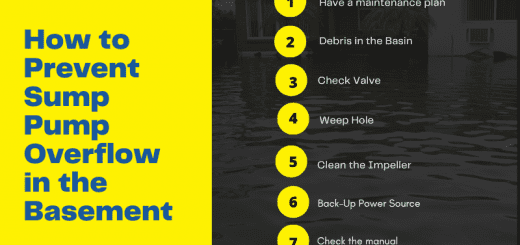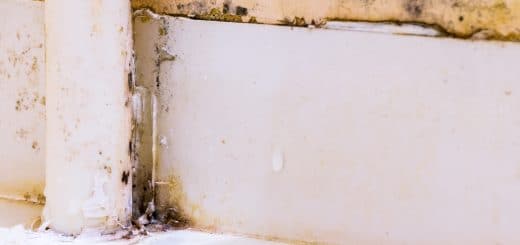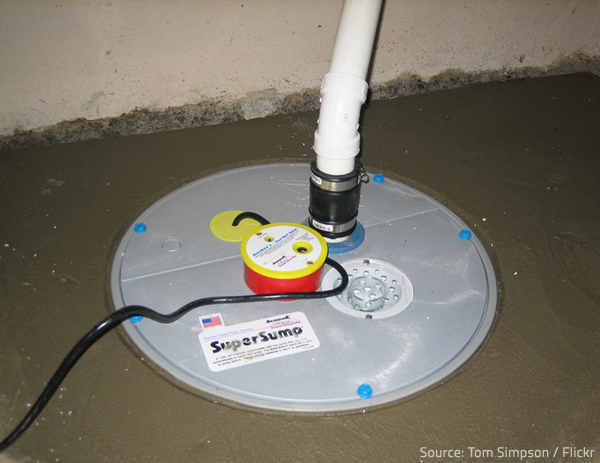What to Do If Your Basement Floods: 8 Steps for Property Owners
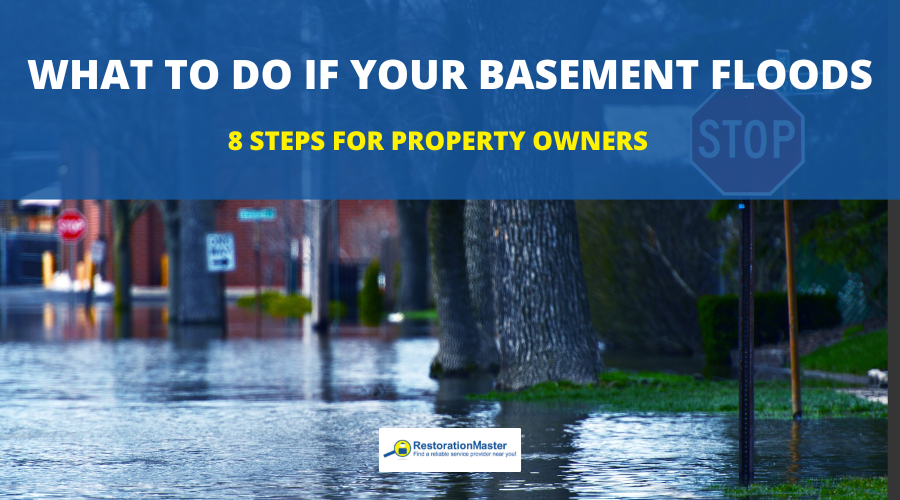
Dealing with a flooded basement in your home or business can be incredibly stressful, not to mention the significant and costly damage it can cause to your property. Acting quickly is essential to minimize water damage and prevent further issues.
In this article, we’ll explore whether insurance covers basement floodingFlooding is the overflow or accumulation of water in areas t... More, discuss whether a basement can dry out on its own, and outline 8 actionable steps you can take immediately after a basement flood to protect your property. By following the steps outlined in this article, homeowners can effectively and efficiently restore their basements from flood damage.
Does Insurance Cover Flooded Basements?
Most homeowners’ insurance policies cover basement floodingFlooding is the overflow or accumulation of water in areas t... More caused by plumbing issues such as burst pipes or overflowing plumbing fixtures, as well as leaks from appliances such as washing machines and water heaters. If this happens, contact your insurance agent immediately, explain the situation, and arrange for an adjuster to inspect the damage as soon as possible.
However, standard policies typically do not cover basement floodingFlooding is the overflow or accumulation of water in areas t... More caused by natural floodingFlooding is the overflow or accumulation of water in areas t... More or sewageSewage is wastewater containing biological and chemical cont... More backups. To avoid surprises, review your policy carefully to understand what is and isn’t covered.
Will a Flooded Basement Dry on Its Own?
A flooded basement won’t dry out on its own. Ignoring it will only cause the damage to get worse, as the water will continue to spread and get absorbed into porousPorous describes a material that contains small openings or ... More building materials and furnishings. If you do not address basement floodingFlooding is the overflow or accumulation of water in areas t... More, you could end up with severe structural damage and mold growth.
To prevent further damage to your property, you’ll need to take immediate action. Proper steps must be taken to drain the standing water, thoroughly clean the space, and ensure the basement is completely dry.
8 Steps for Property Owners to Take Immediately After Basement Flooding
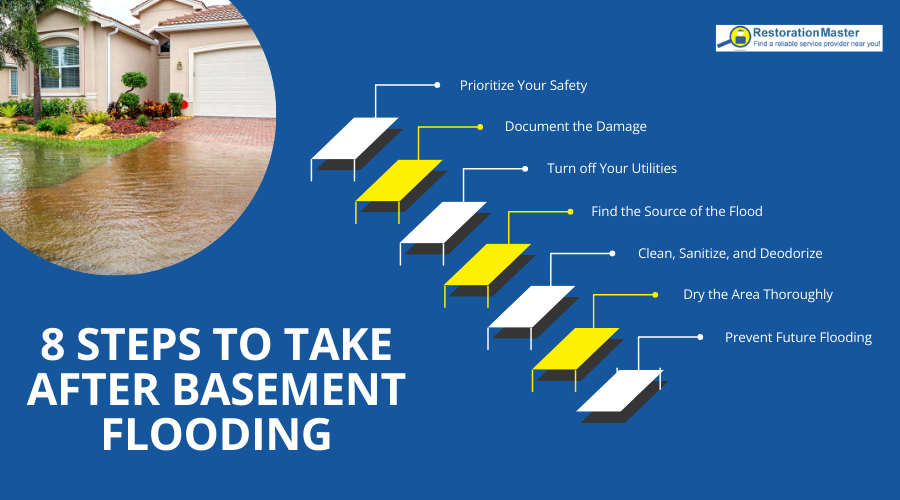
Dealing with a flood in your home or business can be both stressful and costly. That’s why taking immediate action after a basement flood is crucial to minimizing damage and preventing further issues. To help you respond effectively, here are some essential steps to take right away:
Prioritize Your Safety
Dealing with a flood at your home or business can be overwhelming. Your first instinct might be to dive in and start cleaning up right away. However, it’s crucial to take the right steps to avoid causing further damage to your property or putting your health at risk. To help you stay safe and protect your property, follow these essential tips after a flood:
- You should always make sure that you are adhering to local warnings. All submerged power lines should be avoided, and you should confirm the structural stability of the affected area before entering after a flood.
- You should also always wear protective gear, document the damage for insurance purposes, and be aware of all potential health hazards from being in contact with contaminated flood water.
- Always plan and carry out repairs with future risk mitigation in mind.
Document the Damage
Make sure to take pictures and videos of all the damage within your property. This will help your insurance company assess the amount of damage so you can be properly compensated.
Turn Off Your Utilities
Before you enter a flooded basement, make sure that all electricity is shut off at the breaker box. If the box is in the basement, then you will need to call a licensed electrician to shut it off safely.
If you smell gas, leave the house right away and call your utility company to send a technician to address this issue. Do not go back indoors until you are given the all-clear by the utility company.
Find the Source of the Flood
If your basement has flooded due to a storm, sewer backup, or plumbing issue, it’s crucial to stay upstairs and avoid contact with potentially contaminated water. Leave the cleanup to professionals who are equipped to handle such situations safely. If the floodingFlooding is the overflow or accumulation of water in areas t... More is caused by a plumbing problem, turn off the utilities immediately. Then, check for signs of leaking pipes or damaged appliances that may need repairRepair is the act of fixing or restoring damaged property, m... More. If you’re unable to address the issue on your own, contact a licensed plumber right away to prevent further damage.
Remove the Water (If Possible)
Make sure that all standing water is removed from the basement with a sump pumpA sump pump is a pump installed in a basement or crawlspace ... More. You can then use a wet vac or mop to remove the remaining water.
Clean, Sanitize, and Deodorize
Thoroughly clean all surfaces, including walls and floors, by scrubbing them. For non-porous surfaces, follow up with a bleach-based disinfectantA disinfectant is a chemical substance used to kill or inact... More to ensure proper sanitation. PorousPorous describes a material that contains small openings or ... More surfaces, on the other hand, should be gently wiped down using a cellulose spongeA sponge is a porous material used to absorb liquids or clea... More and a mild cleaning solutionA solution is a homogeneous mixture of two or more substance... More.
Dry the Area Thoroughly
Use large fans and a dehumidifierA dehumidifier is a device that removes excess moisture from... More all day for several days. If the weather allows, make sure to increase the fresh air circulation by opening the windows.
Prevent Future Flood Damage
While a flooded basement can be repaired and restored, it’s always better to prevent floodingFlooding is the overflow or accumulation of water in areas t... More from happening in the first place. To help safeguard your home, here are some effective methods for preventing basement floods:
- Make sure to inspect the basement sump pumpA sump pump is a pump installed in a basement or crawlspace ... More and floor drain regularly, especially after a heavy storm.
- Always be ready for any weather emergencies and power outages by having a backup battery-powered pump.
- Regularly check hoses and connections for any signs of wear, and make sure they are replaced every five years.
- All basement windows should be protected by acrylic covers, and window-well drains should be clear of any debris.
- Make sure to routinely check for exterior foundation issues and interior cracks in the basement walls and address these issues.
- All gutters and downspouts should be kept free of clogs and direct rain and snow melt away from the foundation.
- All lawns should be graded, or you can install French drains so that water does not gather around the foundation walls.
Call Professionals for Flood Damage Restoration
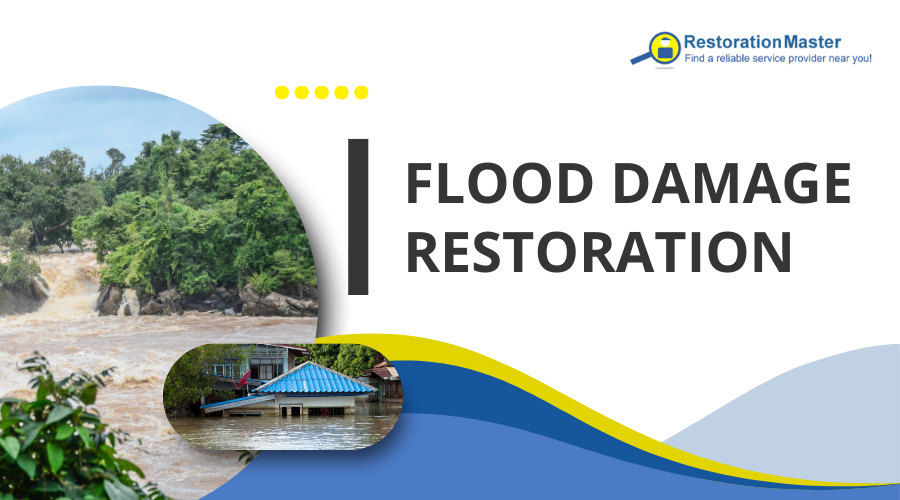
A flooded basement can be a nightmare for any homeowner or business, but with the right steps, you can minimize the damage and begin the restorationRestoration is the process of returning a property to its pr... More process quickly and safely. Remember, acting fast is key—not only to prevent further destruction but also to reduce the risk of moldMold is a type of fungus that grows in damp or humid conditi... More and structural issues down the line. While it’s important to understand what your insurance covers and how to handle cleanup, it’s equally crucial to take preventive measures to avoid future floodingFlooding is the overflow or accumulation of water in areas t... More. By staying informed and prepared, you can protect your property, save on costly repairs, and restore peace of mind.
If you experience significant basement floodingFlooding is the overflow or accumulation of water in areas t... More in your home, it is important to call the water damage restoration professionals at RestorationMaster right away to clean up the damage. Our technicians use advanced water extraction and dehumidificationDehumidification is the process of reducing and controlling ... More equipment to remove the flood water and thoroughly dry the affected areas and materials. We will then restore the damage caused by the floodingFlooding is the overflow or accumulation of water in areas t... More as well as clean and disinfect the area to restore safe conditions.










